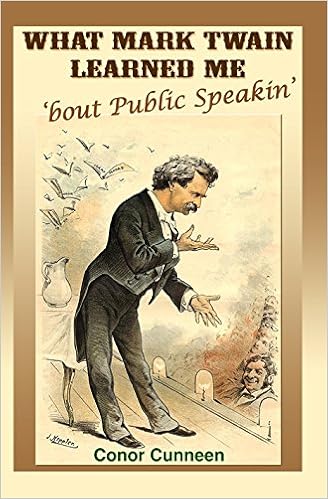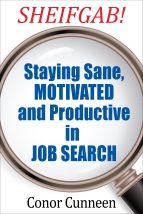September 6: TODAY in Irish History:
** ** **
Snippets of Irish History by Conor Cunneen IrishmanSpeaks ![]()
Conor is a Chicago based Motivational Humorous Business Speaker, Author and History buff.
***********************
***********************
BUY Author Signed Copy of For the Love of Being Irish

NEW NEW
SHEIFGAB! Staying Sane, Motivated and Productive in Job Search.
An insightful, realistic, yet humorous book on the job search process by Today in Irish History Curator Conor Cunneen
Special accessible price for job seekers on Kindle of $2.99
.
.
1929: Passport Problems
Despite now being an independent state, Ireland still faced challenges in terms of basic administration.
On this day diplomat John V. Fahy wrote a memorandum decrying that Irish Free State Passports in the United States of America had to be issued via Britain.
“The present position is that all Irish nationals in the U.S.A. who have not acquired American citizenship and who do not possess either British passports or Irish Free State passports must apply to the British Consular officers who will issue British passports to enable them to visit this country or to travel to any other country outside the U.S.A.
The continuance of the anomalous position whereby the British authorities, notwithstanding the establishment of the Legation and of our offices in New York, still continue to perform functions of this character on our behalf has been the subject of a good deal of adverse criticism. The Minister Plenipotentiary2 has at various times pointed out the urgency of the question of the issue of our own passports in the U.S.A., stressing that the fact of having to refer our nationals to British Consulates has resulted in loss of prestige for the constitutional and international position of the (country). Action is at present being taken with a view to the inauguration of satisfactory machinery for the issue of our own passports early in the coming winter, that is, some time about November.”
Source: Documents on Irish Foreign Policy.
.
.
1934: 100,000 tyres required annually in Ireland
Interesting debate in Seanad (Senate) on allowing one tyre (tire) manufacturer (Dunlop) a monopoly in Ireland
Senator Crosbie: “I listened with very great interest to Senator Sir John Keane’s speech, and, to a very large extent, I agree with it. I know that monopolies are very undesirable, but in the present circumstances we have to face the situation as it is to-day. There is no question about it, there is an enormous amount of money going out of this country for tyres. I think Senator Sir John Keane mentioned that there were 100,000 tyres required annually in Ireland. Roughly, I reckon that would mean at least £200,000 to £300,000 a year. This is a trade that can only be undertaken by a very big combine such as Dunlops, and in order to induce them to come into this country you have to give them very considerable advantages. I happen to know that, because I tried to get another company to do exactly what the Dunlop Company are doing. Looking at it from a business point of view, I think it is a perfectly sound proposition. Senator Sir John Keane has talked of the labour that will be displaced. Even though the company may have a monopoly, I still believe that all these distributing agents will be required. I can hardly follow him when he says an enormous amount of money has been sunk by these distributing agencies in Ireland, for, beyond the tyres that they have in stock, and which will probably go up in value now, and the houses they have built, I do not really see what other expense they have been put to. One extraordinary thing about making tyres is that it apparently requires an enormous variety of machinery.
.
.
1935: Commissioning of Irish Army Officers
The Catholic Herald reported on the commissioning of officers in Irish army in the presence of Eamonn De Valera
“The first commissions in the volunteer force were conferred at Curragh Camp, Co. Kildare, on Wednesday. Mass was celebrated at 11 o’clock by the Rev. J. Fitzsimons, who later blessed the officers’ swords. When Mr. de Valera arrived the National anthem was played and the President inspected the guard of honour, under Captain F. Tummon. The general salute was sounded as the colours were marched into the square. The 79 new lieutenants then took the oath to the colours in presence of Mr. Aiken, Minister for Defence, and were presented with their commissions, swords and epaulettes.”
.
.
1940: War comes to Galway
The horror of a war declared just days previously comes to Galway. German U-boat 30 torpedoed the SS Athenia 250 miles north-west of the Donegal coast resulting in the deaths of 112 of over 1,400 passengers and crew. The Athenia was bound for Quebec carrying civilians fleeing the situation in Europe. It was the first ship to be sunk in the war.
Survivors were picked up by the Norwegian freighter Knute Nelson and brought to Galway.
.
READ: The day war came to Galway
**
.
.
WATCH: A Short History of Ireland
Want to learn more about Ireland? See these images and more in the acclaimed For the Love of Being Irish
___________________________________
This history is written by Irish author, business keynote speaker and award winning humorist IrishmanSpeaks – Conor Cunneen. If you spot any inaccuracies or wish to make a comment, please don’t hesitate to contact us via the comment button.
Visit Conor’s YouTube channel IrishmanSpeaks to Laugh and Learn.
Tags: Best Irish Gift, Creative Irish Gift, Unique Irish Gifts, Irish Books, Irish Authors, Today in Irish History TODAY IN IRISH HISTORY (published by IrishmanSpeaks)
















